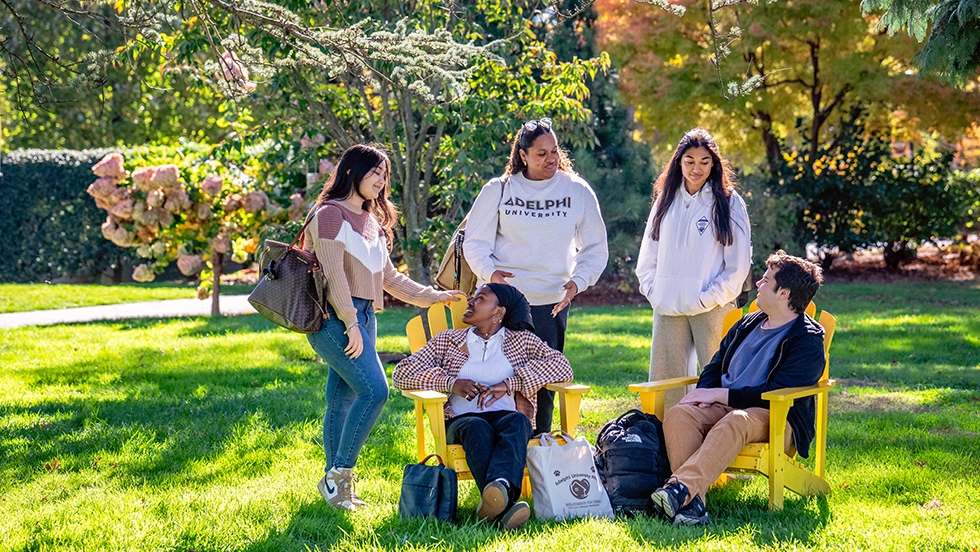
For the second year in a row, Adelphi University has been hailed as a U.S. university that fosters a culture of environmental responsibility in The Princeton Review Guide to Green Colleges: 2025 Edition.
Announced earlier this month during Campus Sustainability Month—an international celebration of sustainability in higher education by The Association for the Advancement of Sustainability in Higher Education—the list of 511 schools from around the country is based on institutional data and student survey responses, then selected for their exceptional programs, policies, and practices related to sustainability and the environment.
“Since we created our Green Guide in 2010, we have also seen dramatic growth in the number of colleges committing to sustainability practices—from sourcing food locally and constructing LEED-certified buildings, to making commitments to becoming fossil fuel-free,” said Rob Franek, editor-in-chief of The Princeton Review. “We are proud to shine our light on these exceptional schools and to recommend them to students who want their ‘best-fit’ college to also be a green one.”
For the past two decades, Adelphi has prided itself on being a pesticide-free organic campus. A registered arboretum, the University is home to nearly 70 different types of trees and shrubs, as well as to the University’s unofficial mascot, the Adelphi bunnies.
As part of Adelphi’s Momentum 2 strategic plan, the University has committed to sustainability goals by dedicating one of its 16 priorities to efforts that support an environmentally friendly and fuel-efficient environment.
Recent initiatives include:
- The installation of solar panels on the roof of Swirbul Library and the Center for Recreation and Sports, respectively.
- Adelphi has 18 EV charging stations currently on campus—12 in the Motamed Field garage and six in the Nexus Building garage.
- Dining Services has made sustainability a priority by sourcing regional suppliers, ensuring that water bottle filling stations are located throughout campus and reducing food waste by using “imperfect” produce from root to stem.
- During the renovation of the Ruth S. Harley University Center, which reopened in 2021, environmentally friendly methods were used whenever possible, including the use of reclaimed or biomass materials and energy-efficient lighting.
Learn more about Adelphi’s sustainability and conservation efforts.